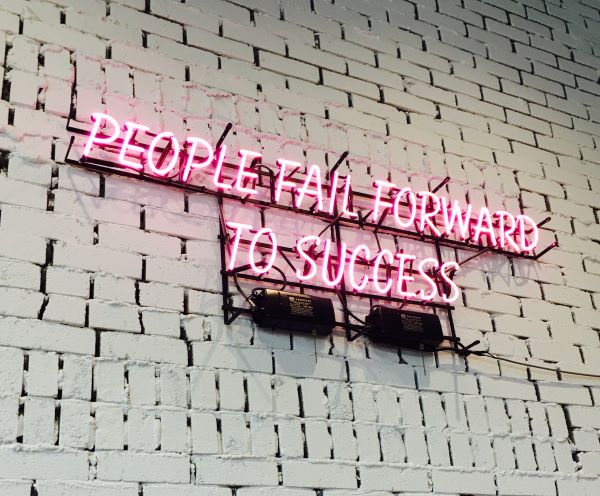Fail Early and Often – Early Failures Are a Predictor of Future Success

This time of year, the admissions decisions are coming in hot—and they often aren’t the decisions we’d for which we had hoped. As parents, it’s painful to watch our kids experience disappointment and frustration, and for the kids, well, it’s just straight-up painful. Now, we all know that no matter where your student ends up, they will still be able to be successful in life and that it’s best to go to the school that loves you back. But it turns out there’s a little bonus to this type of disappointment—it can set a person up for later success. Studies have shown that individuals who experience early career failure are actually more successful in the long run. In one study, scientists who experienced the rejection of their grants by the NIH early in their careers actually had more successful research careers in the long run. It’s theorized that because of the grant rejection, the scientists became more persistent and resilient, which allowed them to adjust and grow in their careers to become more successful.
The same phenomenon has been found in longitudinal studies of the “cool kids” in middle and high school. Kids that were popular as teens tend to be less successful in life, have less professional success, more problematic relationships, and are more likely to have a history of criminality. One theory is that climbing to the top of the social pecking order can give teens a sense of entitlement and superiority, which is the opposite of the ability to use constructive feedback and resilience. Resilience and adapting to new demands are definitely important in long-term life success, so perhaps this is why people popular as teens struggle a bit more as adults.
I honestly believe that parenting is a long-term game, and you really can’t tell how a person will turn out until they are in their thirties. Now, that doesn’t stop me from worrying about the losses and mistakes my own kids experience, but it’s a good reminder on the days when things seem a little bleak. I get a lot of eye rolls from my teens when I tell them, “Failure is the new success,” but I hope that it sinks in over time.
In our achievement-based culture, the emphasis is on present accomplishments versus future ones. College admissions is rife with this kind of pressure and competition among both parents and kids. Based on science, however, this pressure and emphasis on current adolescent achievement seems misguided. I always tell my clients that success is a marathon, not a sprint. Shifting the focus to how to use failure to improve the future, rather than trying to avoid it, seems to hold the keys to long-term success.




